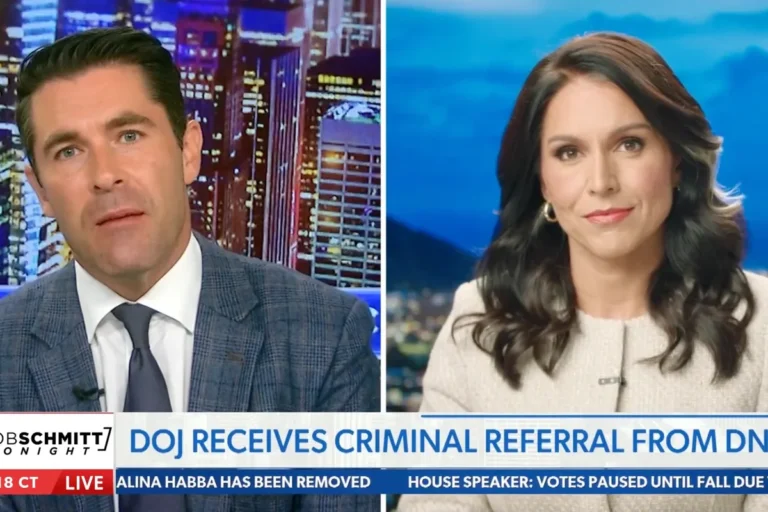Tulsi Gabbard Unveils Controversial Report on Obama Administration’s Intelligence Assessment
Introduction
In a recent move that has ignited debate across political circles, Tulsi Gabbard, the Director of National Intelligence, has declassified a 2020 House Intelligence Committee report. Gabbard argues that this report reveals the Obama Administration’s role in fabricating a false intelligence assessment from 2017 regarding Russia’s influence in the 2016 presidential election.
Key Points from the Report
The findings from the report challenge the narrative that Russian President Vladimir Putin favored Donald Trump over Hillary Clinton. Instead, Gabbard claims the intelligence assessment was manipulated to serve a political agenda aimed at undermining Trump’s presidency.
Critical Conclusions in the Report
- Questionable Intelligence: The report contends that the Obama administration’s conclusion was based on flawed sources and lacked credibility.
- Misrepresentation of Motives: The characterization of Putin’s actions was allegedly influenced by political considerations rather than objective analysis.
- Source Credibility: Central to the controversial assessment was a report by Christopher Steele, a British former intelligence officer known for his bias.
Gabbard’s Assertions
According to Gabbard, the intelligence community collaborated with political allies in the media to create a narrative intended to delegitimize Trump’s presidency:
“New evidence has emerged of the most egregious weaponization and politicization of intelligence in American history.”
Subversion Allegations
Gabbard accuses former President Obama and ex-CIA Director John Brennan of conspiring to alter public perception of the election outcome:
- Suppressing intelligence suggesting Putin prepared for a Clinton victory.
- Fabricating findings based on unreliable sources.
- Engaging in what Gabbard refers to as a “years-long coup” against Trump.
Evidence of Russian Influence
The report does acknowledge that Russia did engage in conventional and cyber operations during the 2016 election, including:
- Leaking politically sensitive emails to undermine confidence in American democracy.
- Aiming to weaken the perceived inevitability of a Clinton presidency.
However, it contests the notion that these actions were aimed at elevating Trump to victory.
Response from Obama’s Camp
In response to Gabbard’s claims, a spokesperson for Obama has dismissed the allegations as “outrageous” and a “weak attempt at distraction.” The spokesperson elaborated:
“These bizarre allegations are ridiculous.”
Trump Weighs In
Former President Trump has also chimed in on the controversy, arguing for accountability for those involved in the alleged conspiracy:
“After what they did to me, it’s time to go after people. Obama has been caught directly.”
Legal Ramifications
Gabbard has signaled her intent to forward criminal referrals to the Department of Justice, prompting discussions on whether investigations or criminal charges should follow.
Conclusion
The release of the House Intelligence Committee report raises substantial questions regarding the integrity of intelligence assessments and their potential politicization. As Gabbard seeks further accountability from key figures in the Obama administration, the implications of these revelations will likely resonate throughout the political landscape for years to come.
Related Resources
- Obama Administration’s Handling of Intelligence
- Tulsi Gabbard’s Political Career
- The Russia Investigation Explained
This controversy paints a complex portrait of the intersection between intelligence and politics, highlighting the critical need for transparency and accountability in democratic institutions.


